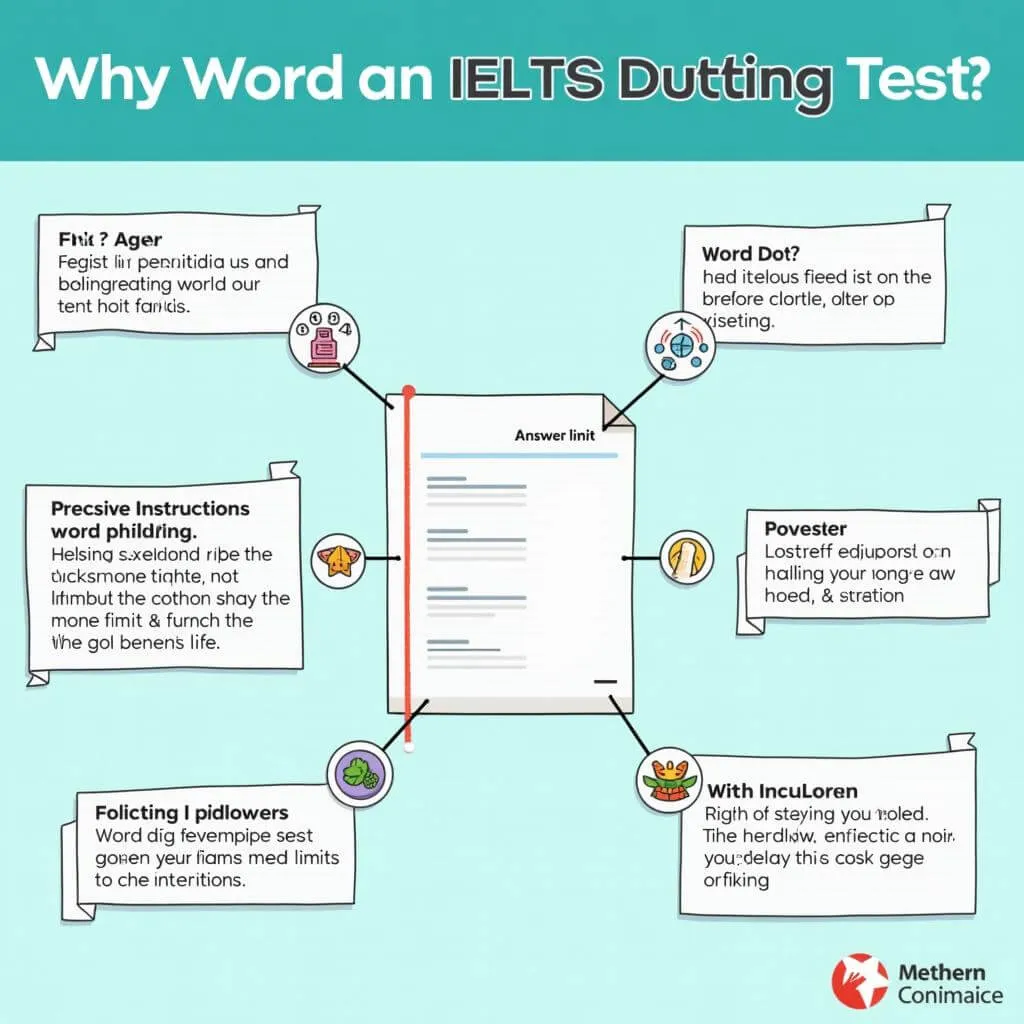Understanding IELTS Listening Word Limit Rules
IELTS Listening word limit rules are crucial for test-takers to understand and follow. These guidelines ensure that candidates provide concise and accurate answers within the specified parameters. Adhering to these rules can significantly impact your overall score in the Listening section.
The Importance of Word Limits
Word limits in the IELTS Listening test serve several purposes:
- Assessing precise comprehension
- Evaluating ability to follow instructions
- Maintaining fairness across all test-takers
- Simulating real-life communication scenarios
Understanding and respecting these limits is essential for maximizing your score potential.

Key Word Limit Rules for IELTS Listening
Rule 1: Maximum Word Count
The most fundamental rule is the maximum word count allowed for each answer. Typically, IELTS Listening questions specify a word limit, such as “Write NO MORE THAN TWO WORDS for each answer.” It’s crucial to adhere strictly to this limit.
Examples:
- Correct: “violin lessons” (2 words)
- Incorrect: “weekly violin lessons” (3 words)
Rule 2: Hyphenated Words
Hyphenated words are counted as single words. This rule applies to compound adjectives and certain nouns that are commonly hyphenated.
Examples:
- “well-known” counts as one word
- “self-esteem” counts as one word
Rule 3: Numbers and Dates
Numbers written as digits (e.g., 42) count as one word. However, when written out in full (e.g., forty-two), they follow the hyphenated word rule.
Dates follow a similar principle:
- “June 21” counts as two words
- “21/6/2023” counts as one word
Rule 4: Contractions and Abbreviations
Contractions and abbreviations count as the number of words they represent when written in full.
Examples:
- “don’t” counts as two words (do not)
- “TV” counts as two words (television)
Strategies for Adhering to Word Limits
-
Practice active listening: Focus on identifying key information that directly answers the question.
-
Read instructions carefully: Always check the word limit specified for each question before attempting to answer.
-
Use shorthand during the test: Jot down key points quickly, then formulate your final answer within the word limit.
-
Review your answers: Double-check that each response adheres to the specified word limit before transferring to the answer sheet.
-
Familiarize yourself with common question types: Regular practice with official IELTS materials will help you recognize patterns and respond more efficiently.
Common Mistakes to Avoid
-
Exceeding the word limit: Even if your answer is correct, it may be marked wrong if it contains more words than allowed.
-
Misinterpreting hyphenated words: Remember that words like “up-to-date” count as one word, not three.
-
Ignoring specific instructions: Some questions may ask for “NO MORE THAN THREE WORDS AND/OR A NUMBER.” Ensure you follow these precisely.
-
Writing full sentences: The Listening test often requires brief, concise answers. Avoid unnecessary words or explanations.
-
Spelling errors: While minor spelling mistakes may be accepted, significant errors can lead to lost marks. Practice spelling commonly used words in IELTS contexts.
Next Steps for IELTS Listening Preparation
-
Take practice tests: Regularly attempt full-length IELTS Listening practice tests under timed conditions.
-
Analyze your performance: Review your answers, paying special attention to instances where you may have violated word limit rules.
-
Expand your vocabulary: Focus on learning words and phrases commonly used in IELTS Listening contexts to help you identify key information more easily.
-
Improve your note-taking skills: Develop efficient note-taking techniques to capture essential information quickly during the listening passages.
-
Seek feedback: If possible, have an experienced IELTS tutor or study partner review your practice test answers to identify areas for improvement.
By mastering the IELTS Listening word limit rules and implementing these strategies, you’ll be well-prepared to tackle this crucial section of the test with confidence. Remember, precision and adherence to instructions are key to achieving your desired IELTS score.